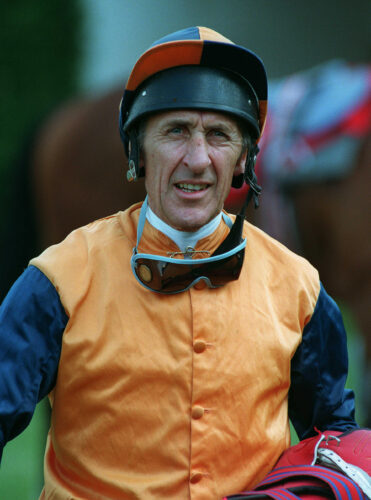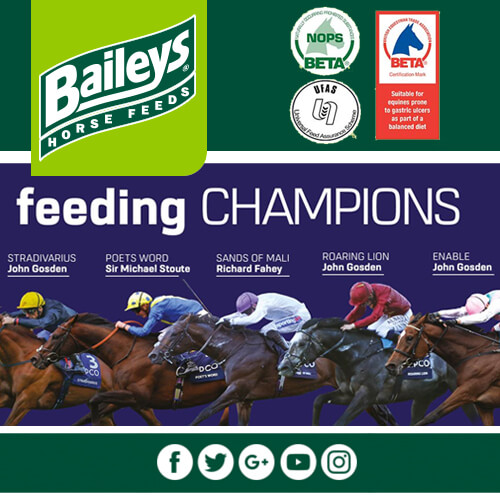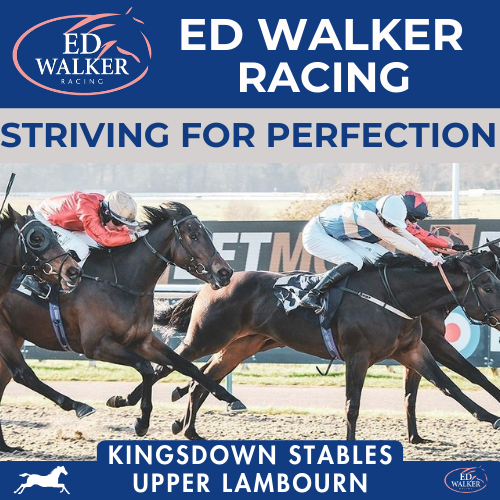Bruce Raymond: A Racing Gentleman’s Final Furlong
 Bruce Raymond’s life in racing was defined not just by winners and trophies, but by grace, humour, and loyalty. When he passed away on 24 August 2025, aged 82, the sport lost one of its most cherished gentlemen and characters.
Bruce Raymond’s life in racing was defined not just by winners and trophies, but by grace, humour, and loyalty. When he passed away on 24 August 2025, aged 82, the sport lost one of its most cherished gentlemen and characters.
Bruce’s career in the saddle spanned more than three decades and nearly 2,000 winners. One of the most stylish riders of his generation, he was a regular on the biggest stages, partnering top-class horses in the July Cup, the Nunthorpe, and the Haydock Sprint Cup. He also guided Easter Sun to Coronation Cup glory in 1982 and steered Bob Back to a famous Prince of Wales’s Stakes success at Royal Ascot in 1985, beating the likes of Pebbles and Commanche Run.
Yet fate denied him a Classic. His closest brush with immortality came at Epsom in 1993, when he conjured a remarkable run from 150-1 outsider Blue Judge to finish second in the Derby. It was the kind of performance that epitomised him: brave, measured, and delivered with quiet excellence. To many, he became known as the best jockey never to win a Classic – a label he carried without bitterness, only with humour.
From Saddle to Suit
When he retired from riding in 1994, Raymond slipped seamlessly into a new role that would ultimately bring him the Classic triumphs that eluded him as a jockey. As a racing manager, first assisting Joe Mercer and then representing the powerful Rabbah Bloodstock group, he became a trusted figure to some of the sport’s most prominent owners.
For Saeed Suhail, Raymond oversaw Kris Kin’s Derby victory in 2003, and nearly two decades later he was once again in the Epsom winner’s enclosure when Desert Crown stormed home in 2022. The boy from Hatfield who had gone so close as a rider finally had his Derby, not from the saddle, but from the paddock.
A Poignant Final Chapter
Racing has a way of writing its own scripts, and Raymond’s farewell was tinged with the poetry of fate. Just a day before his passing, Suhail’s colt Never So Brave struck at Group 1 level in the City of York Stakes. The timing was heartbreakingly perfect, a last great win for an owner and manager whose bond had lasted decades.
Racing’s Mr Nice Guy
What truly set Bruce Raymond apart, however, was not just his record, but his character. Affectionately known across Newmarket and beyond as “racing’s Mr Nice Guy,” he was a figure without enemies in a sport not always known for its gentleness. Trainers, jockeys, and owners alike remembered his ready humour, his loyalty and his ability to brighten the darkest days with a smile.
Philip Robinson, who succeeded him as a racing manager, called him a second father and spoke of the enormous hole his passing leaves behind. Many others echoed the same theme: a professional of the highest calibre, but more importantly, a friend whose kindness left an indelible mark.
A Life of Grace
Bruce Raymond’s story was not one of unbroken glory, but of perseverance, decency, and understated excellence. He may not have ridden a Derby winner, but he guided others to achieve that dream. He may not have chased headlines, but his influence was felt in countless quiet ways, in the trust of owners, the respect of trainers, and the affection of colleagues.
Racing has lost a true gentleman, but the memory of Bruce Raymond will continue to gallop on, steady and sure, long after the cheers have faded.







